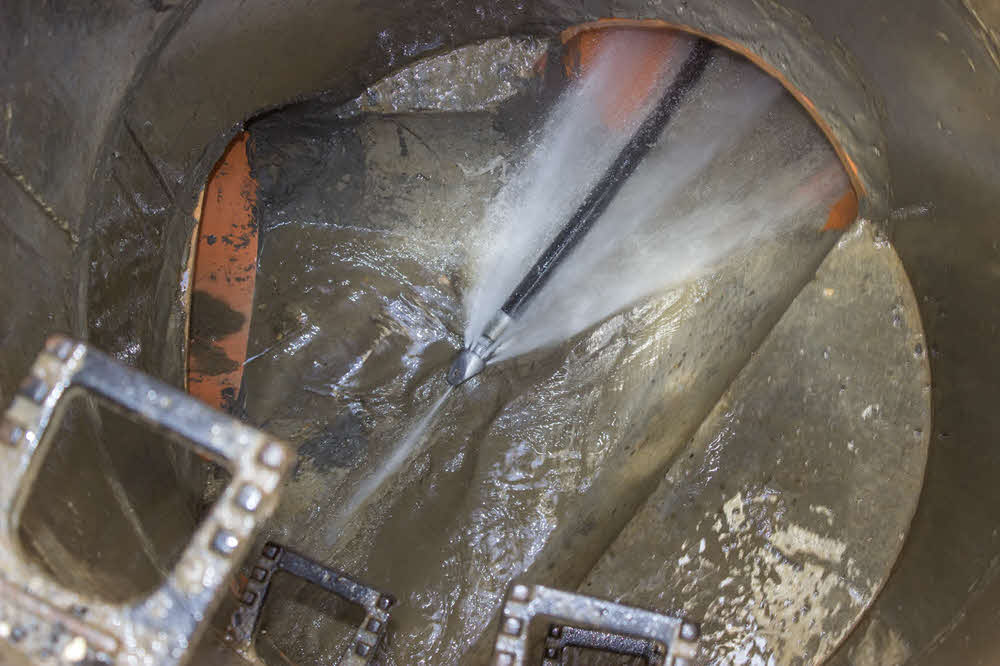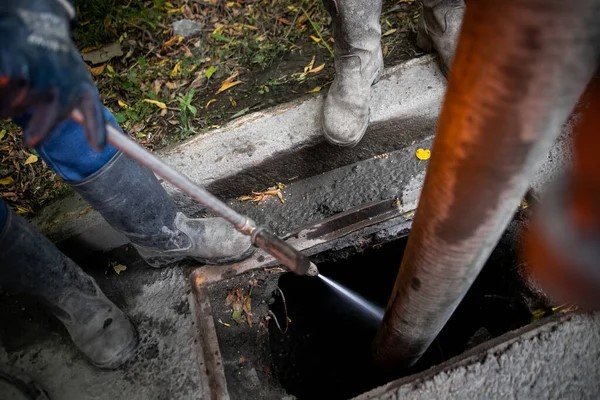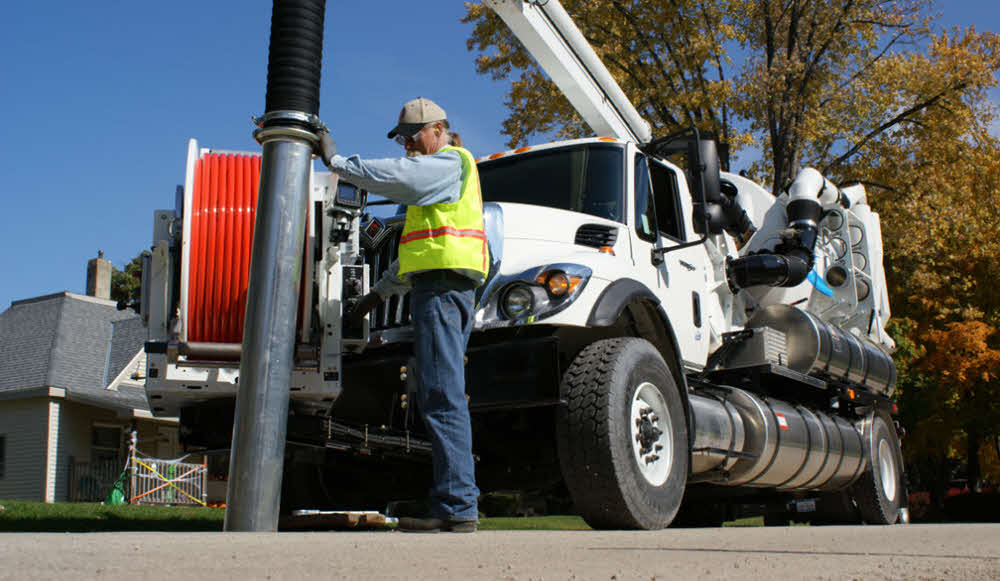Sewer Clean Out Servicesin Romeo MI
Sewer Clean Outs to Keep Your Plumbing Running Smoothly
We Are Locally Owned & Operated For Over 37 Years
Contact Us Today!
We Serve Businesses In And Around The Following Cities:
About Sewer Clean Out Services
Introduction
The city of Romeo, renowned for its rich history and picturesque landscapes, also caters to a thriving commercial landscape. For these commercial properties, an often overlooked but crucial element for seamless operations is none other than smooth-functioning sewer lines. Frequent and professional maintenance of these lines, including sewer clean outs, can contribute considerably towards running businesses without hinderance. It restricts disruptions, costly damages, and fosters a healthy atmosphere for everyone at the establishment.
Understanding Sewer Clean Out in Commercial Settings
It’s essential to understand what a sewer clean out encompasses. Often, this is a process where professionals come equipped to clear blockages in sewer lines—a significant aspect of maintaining commercial properties. They provide direct access to the sewer line, enabling plumbers to locate and fix sewer line efficiently. Typically, clean outs are white, black, or green cap on the grounds of the property that provides easy access to the main sewer line from house to street. However, the location varies based on individual structures and plumbing lines employed.
Benefits of Regular Sewer Clean Out
There are numerous benefits to keep up with regular sewer maintenance. A clean out can prevent sewer drain blockage or address a sewer drain clog, drastically reducing the odds of damaging backups. If your establishment is encountering frequent blockages, it’s a good idea to bring in experts like D&J Contracting to check if your sewer pipe is clogged. They can even replace a sewer line, if necessary. A trenchless sewer line replacement is an especially effective and non intrusive method available for property managers. It reduces the risk of major excavations and potential harm to the structural integrity, providing a cost-effective solution.
Another immense benefit of regular clean outs is improving the longevity of your commercial sewage system. Regular usage and aging can cause the lines to collapse; however, constant tracking can detect a collapsed sewer line early. The repair cost of these could be substantial, making preventative maintenance a considerably more affordable option. It’s noteworthy that the main sewer line replacement cost, while a significant investment, ensures the longevity of the system, so remember to consider this while budgeting for maintenance and operations.
Necessity of Professional Assistance
Now, the idea of cleaning out the sewers lines might appear simple enough, leading some to contemplate undertaking the task themselves or assigning it to their on-site property maintenance staff. However, the process of doing a clean out and subsequently maintaining or even replacing a sewer line is more complicated than it sounds. It requires specific tools, knowledge, and more importantly, experience, especially when dealing with aging infrastructure in bustling commercial properties. It’s advisable to seek professional services like D&J Contracting to ensure the job is done correctly and safely. They can operate everything, from hydro jetting sewer line to sewer pipe jetting to clear any stubborn clogs.
Considering the Costs
It’s significant to view sewer clean outs as long-term investments for your commercial properties. Services like hydro clean sewer line or pressure jet sewer line might come at upfront costs, but they effectively prevent disruptive, expensive issues down the line. For understanding the expenditure, it can range from the price to replace sewer line to adding a cleanout to sewer line, depending on your commercial property’s specific requirements. However, early intervention and opting for preventative services will generally result in much lower spend compared to emergency fixes or large scale replacements.
For example, the sewer line replacement cost estimate might be intimidating upfront, but can you imagine the price of shutting down a commercial space due to sewage backup? Or the impact of an undiscovered collapsed sewer line repair costs? Looking at the bigger picture, regular clean outs and maintenance could essentially save thousands.
Final Thoughts
Maintaining an establishment’s infrastructure, particularly the unseen aspects like sewer lines, is an integral part of managing commercial properties in Romeo. This task, the regular clean out and maintenance services won’t just protect the property from potential damage but will also ensure a healthy, comfortable environment for the business to flourish. With professional services like those offered by D&J Contracting, handling issues ranging from sewer line repair to trenchless sewer line replacement, the task becomes considerably less daunting.
Remember that taking proactive measures in maintaining your commercial property’s sewer lines can save you from major headaches, costly repairs, and disruption in productivity. It isn’t just about avoiding the average cost of replacing sewer line; it’s about ensuring the longevity of your property, its value, and the comfort of its inhabitants. Therefore, when considering your options, it’s less about finding cheaper “sewer lines near me” and more about investing in quality services that offer a comprehensive sewer line care package.
Sewer Clean Out Services Gallery


Call Us Today to receive your Free Quote for
Sewer Clean Out in Romeo
Serving: Romeo, Michigan

About Romeo, Michigan
A settlement here was originally occupied by the indigenous Chippewa (Ojibwe), an Algonquian-speaking people who were part of a large language family of tribes extending to the Atlantic Coast. Those tribes around the Great Lakes are thought to have migrated to this area by the 12th century.
The early European-American settlers in this area referred to the Chippewa settlement as “Indian Village”. In the 1820s and 1830s more migrant European-American families began to settle in the area, building homes and establishing businesses. They renamed the community “Hoxie’s Settlement”, after a man who opened an inn on Main Street. In 1839, Hoxie’s Settlement became incorporated and was renamed as the village of Romeo. The name was suggested by the wife of local merchant Nathaniel Taylor because it was “short, musical, classical and uncommon.” Romeo celebrated its 175th anniversary on March 9, 2013.
Romeo once served as a trading center for the timber industry, and had many mills processing lumber from the region. Many wealthy timber families resided there. Dozens of stately Victorian mansions survive. Romeo is distinct in the area for having a fairly robust, traditional downtown, which has never suffered a major fire. Because of this, some stores and restaurants downtown have features such as original tin ceilings from the Civil War. In the early 20th century, Romeo was the site of an early business devoted to the new automobile industry: the Detroit Auto Vehicle Company operated here from 1904 until 1908.
The village is in northwestern Macomb County, situated at the southeast corner of Bruce Township, with a portion extending south into Washington Township. Armada Township is adjacent to the east and Ray Township to the southeast. M-53 passes through the east side of the village, leading north 16 miles (26 km) to Imlay City and south 30 miles (48 km) to the eastern side of Detroit.
According to the United States Census Bureau, the village of Romeo has a total area of 2.05 square miles (5.31 km), of which 0.002 square miles (0.005 km), or 0.10%, are water. East Pond Creek crosses the easternmost part of the village, flowing east to the North Branch of the Clinton River, part of the Lake St. Clair watershed.
| Census | Pop. | Note | %± |
|---|---|---|---|
| 1850 | 330 | — | |
| 1880 | 1,629 | — | |
| 1890 | 1,637 | 0.5% | |
| 1900 | 1,580 | −3.5% | |
| 1910 | 1,787 | 13.1% | |
| 1920 | 2,102 | 17.6% | |
| 1930 | 2,283 | 8.6% | |
| 1940 | 2,627 | 15.1% | |
| 1950 | 2,985 | 13.6% | |
| 1960 | 3,327 | 11.5% | |
| 1970 | 4,012 | 20.6% | |
| 1980 | 3,509 | −12.5% | |
| 1990 | 3,520 | 0.3% | |
| 2000 | 3,721 | 5.7% | |
| 2010 | 3,596 | −3.4% | |
| 2020 | 3,767 | 4.8% | |
| U.S. Decennial Census | |||
As of the census of 2010, there were 3,596 people, 1,501 households, and 979 families residing in the village. The population density was 1,780.2 inhabitants per square mile (687.3/km). There were 1,659 housing units at an average density of 821.3 per square mile (317.1/km). The racial makeup of the village was 91.9% White, 3.8% African American, 0.2% Native American, 0.5% Asian, 1.1% from other races, and 2.6% from two or more races. Hispanic or Latino people of any race were 5.7% of the population.
There were 1,501 households, of which 32.2% had children under the age of 18 living with them, 46.2% were married couples living together, 14.9% had a female householder with no husband present, 4.1% had a male householder with no wife present, and 34.8% were non-families. 30.8% of all households were made up of individuals, and 13.6% had someone living alone who was 65 years of age or older. The average household size was 2.36 and the average family size was 2.96.
The median age in the village was 40.9 years. 23.5% of residents were under the age of 18; 7.7% were between the ages of 18 and 24; 24.1% were from 25 to 44; 29.4% were from 45 to 64; and 15.3% were 65 years of age or older. The gender makeup of the village was 46.4% male and 53.6% female.
As of the census of 2000, there were 3,721 people, 1,528 households, and 993 families residing in the village. The population density was 1,842.8 inhabitants per square mile (711.5/km). There were 1,605 housing units at an average density of 794.9 per square mile (306.9/km). The racial makeup of the village was 92.66% White, 4.35% African American, 0.16% Native American, 0.40% Asian, 0.11% Pacific Islander, 0.67% from other races, and 1.64% from two or more races. Hispanic or Latino people of any race were 2.74% of the population.
There were 1,528 households, out of which 33.3% had children under the age of 18 living with them, 48.2% were married couples living together, 13.5% had a female householder with no husband present, and 35.0% were non-families. 31.3% of all households were made up of individuals, and 13.2% had someone living alone who was 65 years of age or older. The average household size was 2.40 and the average family size was 3.04.
In the village, the population was spread out, with 26.1% under the age of 18, 8.2% from 18 to 24, 30.1% from 25 to 44, 21.4% from 45 to 64, and 14.2% who were 65 years of age or older. The median age was 36 years. For every 100 females, there were 87.2 males. For every 100 females age 18 and over, there were 82.5 males.
The median income for a household in the village was $48,015, and the median income for a family was $60,179. Males had a median income of $51,875 versus $27,696 for females. The per capita income for the village was $22,588. About 3.2% of families and 3.9% of the population were below the poverty line, including 6.5% of those under age 18 and 3.9% of those age 65 or over.
The government of the village of Romeo consists of elected and appointed officials. The elected officials include six council members, one president, treasurer and clerk. The appointed officials include the Chief of Police, Department of Public Works Director, and Village Administrator. Currently, the elected clerk also holds the appointed position of Village Administrator. The day-to-day operations of the village are handled by the Clerk/Administrator.
Since the turn of the 21st century, Romeo has worked to upgrade its infrastructure. It has improved the streetscape on Van Dyke Avenue, the main road through the village, and installed a new water tower. It had earlier established one of the few wastewater treatment plants in the region. While most of the metropolitan region receives water and sewage service from the City of Detroit, Romeo independently sustains its own supply of water and manages treatment of village sewage. This was especially valuable during the blackout that occurred throughout the entire northeastern United States on August 14, 2003. Romeo was one of the few areas in the Detroit metropolitan area to have clean running water. More recent infrastructure improvements include a complete renovation of the village water system, and replacement of all the sidewalks throughout the village.
Call Us Today to receive your Free Quote for
Sewer Clean Out in Romeo
Related Services in Romeo, Michigan
We Serve Businesses In The Following Zip Codes:
48007, 48015, 48021, 48026, 48035, 48036, 48038, 48042, 48043, 48044, 48045, 48046, 48047, 48048, 48050, 48051, 48066, 48071, 48080, 48081, 48082, 48083, 48084, 48085, 48088, 48089, 48090, 48091, 48092, 48093, 48098, 48099, 48225, 48230, 48236, 48310, 48311, 48312, 48313, 48314, 48315, 48316, 48317, 48318, 48397